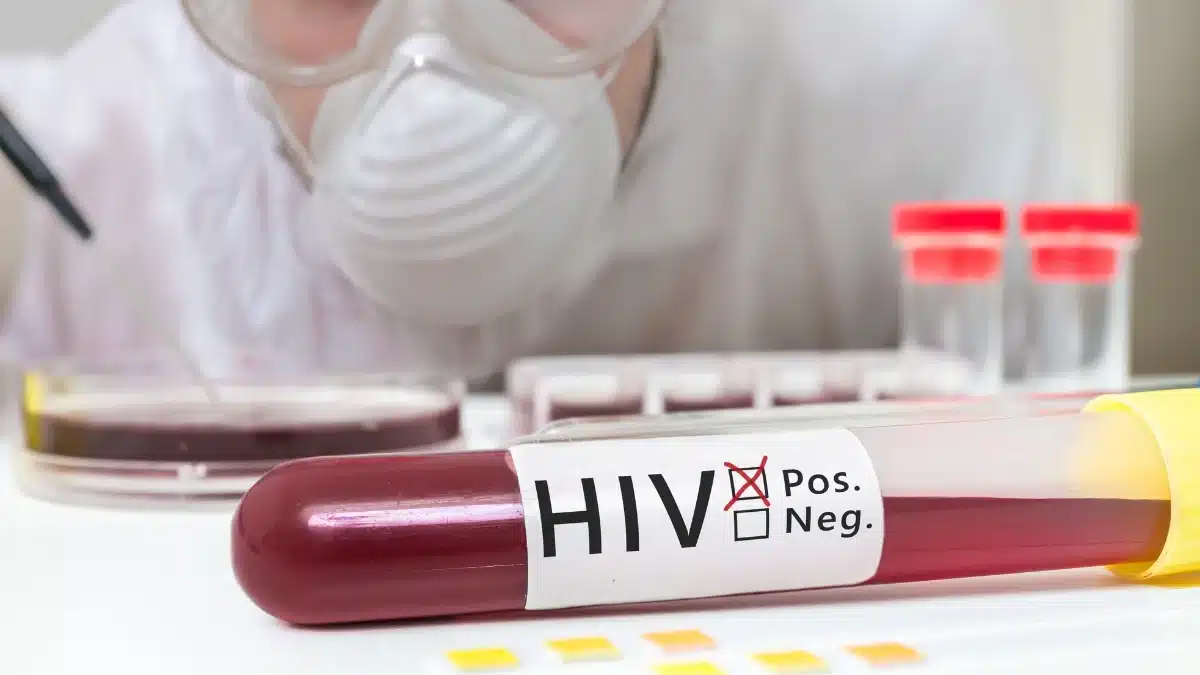10 Reasons to Test for HIV
Testing for HIV is a crucial step in safeguarding your health and well-being.
While it might seem daunting or unnecessary, getting tested for HIV comes with a multitude of benefits.
It helps in personal health monitoring, as sometimes you may contract HIV unknowingly.
Further, HIV testing contributes to public health initiatives and helps governments shape their policies to take proactive steps against HIV.
In a world where HIV/AIDS still presents a significant health concern, here are 10 reasons to test for HIV.
When to get tested for HIV
Here are 10 compelling reasons why getting tested for HIV is so essential:
Had an STD
If you’ve previously contracted a Sexually Transmitted Disease (STD), your chances of contracting HIV might increase.
Individuals with a history of STDs, such as Herpes, Gonorrhea, and Syphilis, are at a higher risk of HIV acquisition.
Shared needles
Sharing needles for tattooing, piercing, or drug use significantly elevates the risk of HIV transmission.
Testing is crucial to assess potential exposure and take necessary precautions.
Had many sex partners
Having multiple sexual partners heightens the risk of exposure to HIV.
It happens especially when you engage in sex without knowing the medical status of your partner.
Having flu-like symptoms

Experiencing flu-like symptoms without a clear cause could be a sign of HIV infection.
While these symptoms may indicate various illnesses, it’s essential to rule out HIV through testing.
To eliminate stigma and discrimination
Supporting friends or loved ones by getting tested alongside them helps in normalizing HIV testing, reducing stigma, and offering moral support.
Solidarity in testing can encourage others to prioritize their health.
Had unprotected sex

Engaging in sexual activity without the use of latex male or female condoms poses a considerable risk of HIV transmission.
Regular testing is crucial if you have engaged in unprotected sex.
If you are pregnant or planning to get pregnant
For individuals planning to conceive or already pregnant, HIV testing is critical for the health of both parents.
Early detection allows for proper medical intervention to prevent mother-to-child transmission.
You may be at risk without realizing it
Sometimes, you may have HIV without realizing it.
Sometimes, risk factors might not be apparent, making regular testing a proactive step in ensuring personal health.
You are a healthcare worker
Healthcare professionals, due to exposure to medical equipment and bodily fluids, are at an increased risk.
Regular testing is not only beneficial for personal health but also for patient safety.
Planning to donate blood
Before donating blood, individuals are screened for various diseases, including HIV.
Knowing your HIV status ensures the safety of the blood supply and helps prevent transmission.
Takeaway
Testing for HIV offers various benefits beyond personal health.
It serves as a proactive measure, aiding in early detection, timely treatment, and prevention of transmission.
Whether prompted by previous STDs, unprotected sex, or flu-like symptoms, testing is crucial.
It promotes solidarity, normalizes the process, and combats stigma.
For prospective parents, it’s a safeguard against mother-to-child transmission.
Even when risk factors aren’t apparently visible, regular testing stands as a shield.
Frequently Asked Questions
When should you get tested for HIV?
Get tested for HIV if you’ve had an STD, shared needles, multiple sex partners, flu-like symptoms, or unprotected sex. If pregnant, before donating blood, or as a healthcare worker, regular testing is crucial. Even without obvious risk factors, regular testing supports proactive health monitoring.
How often should you get tested for HIV?
The frequency of HIV testing depends on risk factors. For those at high risk (multiple partners, drug use), every 3-6 months is recommended. Low-risk individuals should be tested annually. Pregnant women, healthcare workers, and before blood donations should undergo routine testing. Testing frequency supports proactive health management.
Who should be tested for HIV/AIDS?
Everyone aged 13-64 should get tested for HIV as part of routine healthcare. Individuals with multiple sex partners, past STDs, shared needles, or pregnancy plans should be tested regularly. Healthcare workers, blood donors, and those with flu-like symptoms should also undergo testing. Testing ensures proactive health monitoring and prevention.
WowRx uses only high-quality sources while writing our articles. Please read our content information policy to know more about how we keep our content reliable and trustworthy.






